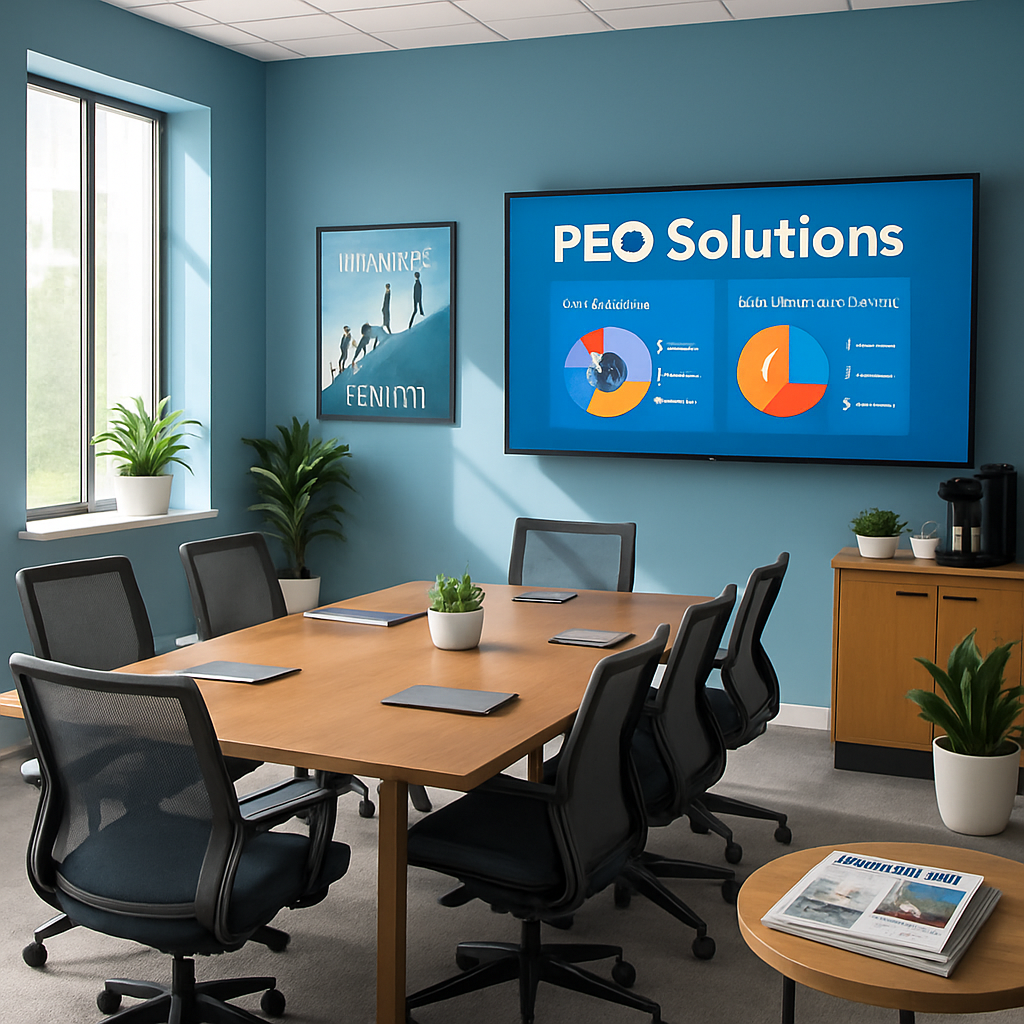The EaseBlog: Human Resources

PEOs and Remote Work: The Perfect Combination
In a world that's increasingly valuing flexibility and work-life balance, remote work has become a critical alternative for businesses and employees looking to harmonize productivity with a more comfortable work environment. But as enticing as a remote setup can be, the transition has its complexities, particularly when managing geographically scattered employees. Transitioning into a remote-friendly operation isn't just about handing out laptops and creating chat channels. It requires a strategic overhaul of a company's operational and organizational structure.
As a human resources professional or a business owner, understanding the nuances and establishing a foundation for remote work is integral to your company's success and employees' happiness. Getting help from experts, like the HR professionals who make up PEOs, can smooth this process and support your company as it navigates this journey.
In this post, we'll explore the intricacies of remote work and how PEOs can play a pivotal role in helping any company transform into a remote office.
Challenges in Making Your Company Remote
Any business can successfully transform into a remote office, but doing so effectively requires having a different mindset – otherwise, it might impede the potential benefits and disrupt the operations. Each aspect requires a systematic solution, from overcoming technological pitfalls to upholding company culture through proper communication. Key challenges include:
Communication
Quick, clear, and consistent communication is critical to remote work. It requires a robust system that ensures no team member feels isolated or out of the loop. Putting technology in place to allow this is critical, but also making sure to hold regular meetings and check-ins to maintain a feeling of connectedness.
Technology and Connectivity
Employees reliant on technology should have the resources and support to function optimally, and companies should be prepared to tackle the inevitable tech glitches.
Benefits and Payroll
Navigating the varied state regulations and requirements for benefits and payroll is a substantial commitment companies must be prepared for. PEOs are particularly helpful here, as they have the expertise built into their functionality.
Cultivating Culture
Fostering a sense of community and belonging is at the heart of combating the potential isolation from a remote work culture.
Work-Life Balance
Setting clear boundaries to separate personal space and workspace is crucial with remote work, as it's easier to let work overtake your life. Coaching employees on creating a healthy integration of work helps them navigate this better.
Performance Measurement
Determining employee performance without the traditional office setup sometimes means re-evaluating the entire performance management process.
Onboarding and Training
The challenge of integrating new employees seamlessly without in-person interactions requires a rethinking of the onboarding and training processes. A PEO can help develop training procedures and easily accessible handbooks to quickly get new employees up to speed.
Addressing these challenges head-on is critical. PEOs can empower companies to manage these changes by offering guidance and handling part of the administrative burden, freeing your internal team's time to focus on your staff.
PEOs Can Facilitate Smoother Remote Work Programs
PEOs partner with businesses to assume the administrative burdens, ensuring that HR functions run smoothly and efficiently while complying with ever-evolving regulations. In taking on the responsibilities of payroll and benefits administration, PEOs ease many of the pain points that come with remote work. Their HR technology keeps every employee connected, regardless of location, and can ensure you adhere to all local regulations.
Here are some of the critical ways PEOs help remote companies.
- Regulatory Expertise: PEOs keep you covered when it comes to the complex web of state and federal employment laws, ensuring your policies are always in line and compliant with regulations.
- Cost-Efficiency: PEOs may offer more affordable options for benefits and insurance because they can negotiate better rates by pooling all their clients' employees into one entity. That keeps costs low while offering flexible options, which is crucial for companies operating with remote staff across various states.
- Technological Advancements: Many PEOs provide access to cutting-edge HR technology, supporting your remote workforce with tools for time tracking, performance management, and employee engagement.
- Training and Development: PEOs can aid in developing comprehensive online training programs that remote employees can access, ensuring everyone is onboarded with the same high standard of training.
By working with a PEO, businesses not only offload the complexities of HR but also benefit from the scalability and adaptability that comes with such a partnership, especially in the context of a geographically dispersed team.
PEOs and Remote Work are a Perfect Pair
PEOs are well-suited to assisting companies in navigating the challenges of a remote team. While the change is more than doable, making the switch requires different prioritization. The infrastructure and support PEOs provide are genuinely complementary to a remote work setup, enhancing not only the HR processes but also the very essence of how work is done.
Flexibility and adaptability are essential components of a thriving business nowadays. In outsourcing core HR tasks, PEOs can free up leadership and HR personnel to respond more quickly and loosely to any need. They can support any business change without disrupting your business's focus on its staff and its growth.
Blog Categories
- PEO (21)
- Employees & Culture (13)
- Risk Management (8)
- HR Outsourcing (7)
- Human Resources (6)
- Workers' Comp (6)
- Compliance (5)
- Payroll (5)
- PAGA (4)
- Benefits (3)
- Flexible Spending Account (3)
- Podcasts (3)
- Diversity (2)
- HR technology (2)
- Training (2)
- ASO (1)
- Healthcare Savings Account (1)
- Inclusion (1)
- Legal Updates (1)
- PTO (1)
- SB 553 (1)
- Special Districts (1)
- recruiters (1)
- staffing (1)
Subscribe Here!
Let us help streamline the way you manage HR.

Subscribe for our the latest news and legal updates that will affect your business.
Newsletter Sign Up
Contact Us
Get in touch with us today.




